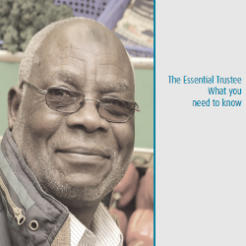Proposed Charity Commission guidance for trustees has been heavily criticised in a consultation response from NCVO, the Association of Charitable Foundations and the Charity Finance Group
The Charity Commission recently consulted on The Essential Trustee (CC3), its new trustee guidance. In an eight-page response document NCVO, ACF and CFG said the guidance was too strong and would "inhibit action and innovation".
“We are of the view that the current draft takes an excessively prescriptive tone in various sections, and misrepresents the scope and nature of the duties that in fact apply to trustees,” the response said.
It said that as The Essential Trustee guidance is: “often the first (and only document)” that new trustees receive, it must be relevant to all charities, not just the biggest ones.
“The guidance as currently drafted is likely to inhibit action and innovation at a time when trustees need to use their discretion and innovate more," the response said.
“We particularly feel that many of the good practices recommended in the current draft are relevant to medium, and larger charities and may not be suitable for smaller organisations.”
The response said the new guidance left too much scope for “regulatory creep”.
The response said the guidance had significantly changed the interpretation of the word 'should' and that this caused particular problems.
“We do not consider this definition – which suggests a mandatory set of behaviours – to be consistent with basic charity law, which establishes general principles to be interpreted in the particular circumstances,” it said.
The umbrella bodies found that the draft guidance created “a great amount of confusion” when it came to defining what the legal of duties of being a trustee involved.
The response also says that there is nothing in the draft concerning the Statement of Recommended Practices (Sorp) for charities, which should be added.
In its conclusion, the response worries that without changes “potential trustees will be deterred from taking on the role” and existing trustees “will be inhibited from taking innovative action.”
With this in mind, the response recommends making it obvious in the guidance that: “it’s extremely rare for trustees who act honestly and reasonably to be held personally liable.”
The response said there are some pleasing aspects to the new draft: it was “shorter in length” as well as better linked so as to “avoid repetition”.
The Charity Commission will now consider the response and publish its final “Essential Trustee” version in the spring.









